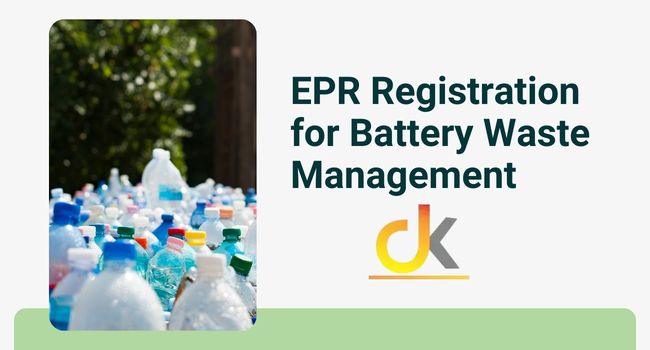Battery Waste Management: A Comprehensive Guide

In today’s world, where technology plays an integral role in our daily lives, the use of batteries has become ubiquitous. From powering our smartphones to running electric vehicles, batteries are an essential part of modern life. However, with the increasing use of batteries comes the challenge of managing battery waste.
Understanding Battery Waste
Battery waste refers to batteries that are no longer functional or useful and need to be disposed of properly. Improper disposal of batteries can lead to serious environmental and health hazards. Batteries contain various toxic substances such as lead, cadmium, mercury, and lithium, which can leach into the soil and water, contaminating the environment and posing a threat to human health.
Types of Batteries
There are several types of batteries commonly used today, each with its own method of disposal:
1. Alkaline Batteries
Alkaline batteries are the most common type of household batteries. They are typically used in devices such as remote controls, flashlights, and toys. Alkaline batteries can be safely disposed of in the regular trash, but it is essential to check local regulations as they may vary.
2. Rechargeable Batteries
Rechargeable batteries, including nickel-cadmium (NiCd), nickel-metal hydride (NiMH), and lithium-ion (Li-ion) batteries, are commonly used in electronics such as laptops, smartphones, and power tools. These batteries contain hazardous materials and should be recycled properly to prevent environmental contamination.
3. Lead-Acid Batteries
Lead-acid batteries are commonly used in vehicles, uninterruptible power supplies (UPS), and backup power systems. These batteries contain lead and sulfuric acid and must be recycled to prevent lead pollution.
Environmental Impact
Improper disposal of batteries can have severe environmental consequences. When batteries are thrown into landfills, the toxic chemicals they contain can leach into the soil and groundwater, contaminating the environment and posing a risk to human health. In addition, batteries that are incinerated can release harmful pollutants into the air, contributing to air pollution and climate change. Professional Essay Writers
Battery Waste Management Solutions
1. Battery Recycling
Battery recycling is the most effective way to manage battery waste and reduce its environmental impact. Recycling allows valuable materials such as lead, cadmium, nickel, and lithium to be recovered and reused, reducing the need for raw materials and minimizing environmental pollution.
How Battery Recycling Works
- Collection: Batteries are collected from households, businesses, and electronic waste recycling centers.
- Sorting: Batteries are sorted by type and chemistry to determine the best recycling method.
- Breaking and Sorting: Batteries are broken down into their component parts, and materials such as lead, cadmium, nickel, and lithium are sorted for recycling.
- Recovery and Refining: Recovered materials are refined and used to manufacture new batteries and other products.
2. Battery Disposal
Proper disposal of batteries is essential to prevent environmental contamination and protect human health.
Steps for Proper Battery Disposal
- Check Local Regulations: Before disposing of batteries, check local regulations to determine the proper disposal method.
- Segregation: Separate batteries by type (e.g., alkaline, rechargeable, lead-acid) for proper recycling or disposal.
- Battery Drop-Off Locations: Many communities offer battery drop-off locations where batteries can be safely recycled or disposed of.
- Mail-In Recycling Programs: Some manufacturers and retailers offer mail-in recycling programs for rechargeable batteries.
3. Environmental Benefits of Battery Recycling
Reduction of Resource Depletion
Recycling batteries helps to conserve natural resources by recovering valuable materials such as lead, cadmium, nickel, and lithium. This reduces the need for raw materials and helps to preserve natural habitats and ecosystems.
Prevention of Pollution
Battery recycling helps to prevent environmental pollution by reducing the release of toxic chemicals into the environment. By recycling batteries, we can minimize the risk of soil, water, and air pollution and protect human health and the environment.
Conclusion
Proper management of battery waste isn’t just a regulation; it’s a collective responsibility for a healthier planet. EPR registration for battery producers in India is a significant step towards achieving this goal. By ensuring responsible collection, recycling, and disposal of used batteries, we can safeguard our environment from the harmful effects of toxic materials. Recycling these batteries breathes new life into valuable resources, reducing the need to extract virgin materials from the earth. This not only conserves precious resources but also minimizes the environmental damage associated with mining.
The impact of responsible battery waste management extends beyond the environment. By preventing the release of toxic materials, we protect the health and well-being of communities. Furthermore, this approach fosters innovation in battery technology, pushing the boundaries of efficiency and sustainability. Ultimately, EPR registration paves the way for a more circular economy for batteries, where resources are used and reused effectively, minimizing waste and environmental impact.











